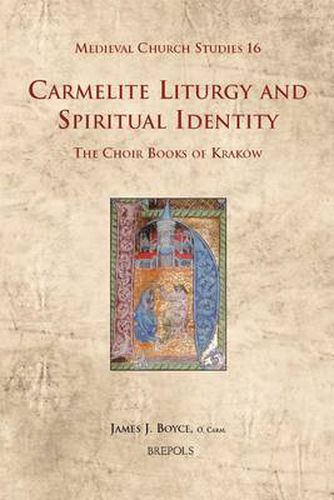Readings Newsletter
Become a Readings Member to make your shopping experience even easier.
Sign in or sign up for free!
You’re not far away from qualifying for FREE standard shipping within Australia
You’ve qualified for FREE standard shipping within Australia
The cart is loading…






This book discusses the significance of the Carmelite liturgy as practised in the Krakow convent over a period of some four hundred years. Specifically, it examines the liturgical contents of five medieval Carmelite choir books from the Krakow convent and another choir book from this collection which is now in Wroclaw, and discusses their contents (especially their significant feasts), in terms of the Carmelite order’s historical self-understanding and established liturgical tradition. Carmelite Liturgy and Spiritual Identity outlines the role of liturgy in the life of the Krakow convent and in relationship to the apostolic activity of these mendicant friars. It argues that the order’s unique liturgical tradition, one which remained distinctive even after the Council of Trent, was crucial to their self-understanding. It also articulates how the liturgical practices of the Krakow Carmelites made a significant contribution to the spiritual life of the city and its people.
$9.00 standard shipping within Australia
FREE standard shipping within Australia for orders over $100.00
Express & International shipping calculated at checkout
Stock availability can be subject to change without notice. We recommend calling the shop or contacting our online team to check availability of low stock items. Please see our Shopping Online page for more details.
This book discusses the significance of the Carmelite liturgy as practised in the Krakow convent over a period of some four hundred years. Specifically, it examines the liturgical contents of five medieval Carmelite choir books from the Krakow convent and another choir book from this collection which is now in Wroclaw, and discusses their contents (especially their significant feasts), in terms of the Carmelite order’s historical self-understanding and established liturgical tradition. Carmelite Liturgy and Spiritual Identity outlines the role of liturgy in the life of the Krakow convent and in relationship to the apostolic activity of these mendicant friars. It argues that the order’s unique liturgical tradition, one which remained distinctive even after the Council of Trent, was crucial to their self-understanding. It also articulates how the liturgical practices of the Krakow Carmelites made a significant contribution to the spiritual life of the city and its people.